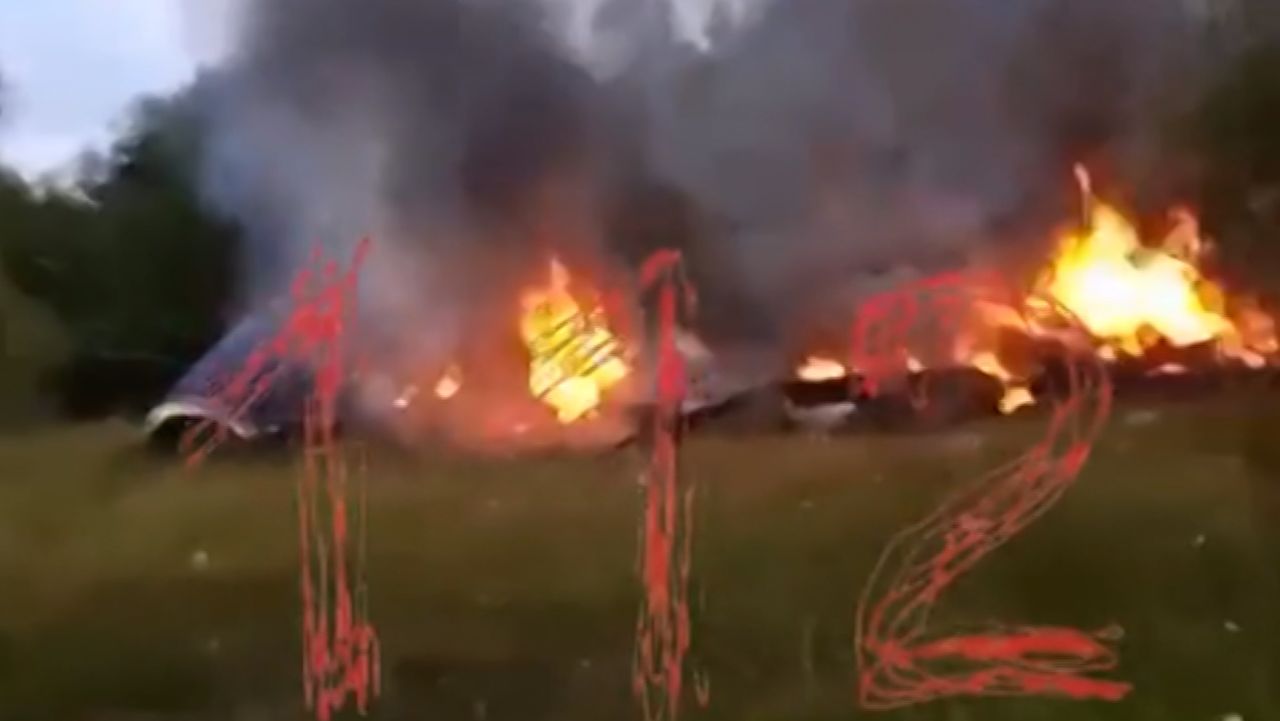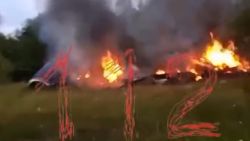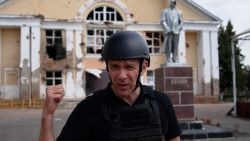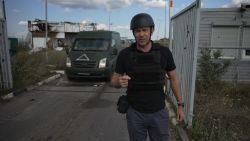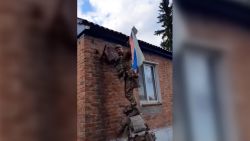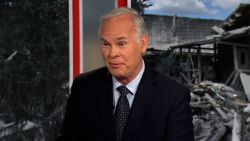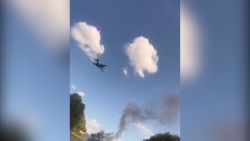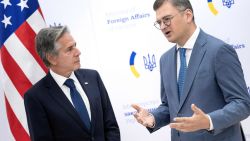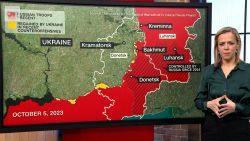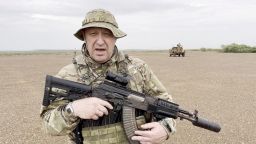The founder of the Wagner private mercenary group, Yevgeny Prigozhin, who died when his plane fell out of the sky, was once close enough to Vladimir Putin to be called his “personal chef” before he led a mutiny that posed perhaps the greatest challenge yet to the Russian president’s long rule.
For years Prigozhin was an elusive figure, growing wealthy in the chaos and opportunity of the post-Soviet Russian economy.
He was thrust into the spotlight through his group’s close involvement in Russia’s invasion of Ukraine, securing rare victories for the Kremlin.
Prigozhin led an armed insurrection against Putin on June 23 – two months to the day before his plane came down – after railing against the country’s military brass over their handling of the Ukraine war.
His group started marching towards Moscow, shooting down military aircraft and killing Russian servicemen. But it was abruptly halted when a deal was brokered by Belarusian leader Alexander Lukashenko.
Criminal charges were dropped against the Wagner boss, who was supposed to go to neighboring Belarus. Putin said in a speech at the time that those on the “path of treason” would face punishment.
But afterwards, his fate was unclear. In the ensuing months, Prigozhin didn’t exactly keep a low profile, popping up in St. Petersburg and, more recently, he claimed, in Africa, suggesting he retained some influence.
Other Putin critics have been poisoned, or worse; meanwhile, a man who led an armed rebellion appeared to have escaped punishment.
No evidence has emerged pointing to any involvement of the Kremlin or Russian security services in the crash. The cause of the incident remains unknown and a Russian probe is ongoing. Investigators on Sunday confirmed, however, after carrying out genetic tests, that the mercenary boss was among the 10 people killed in the crash.
Humble beginnings
Putin and Prigozhin shared relatively humble beginnings, and the Wagner chief grew up in the tougher neighborhoods of St. Petersburg, which is also the president’s hometown.
The men had known each other since the 1990s. The pair reportedly met after Prigozhin’s release following a nine-year stint in prison for fraud and robbery, according to Russian media reports.
Upon leaving jail, he went into the catering business. Putin turned to him to provide food for his birthday parties as well as dinners with visiting leaders, including US President George Bush and Jacques Chirac of France. A headline in The Moscow Times once referred to Prigozhin as Putin’s “Personal Chef.”
Prigozhin subsequently won lucrative catering contracts for schools and Russia’s armed forces. He escorted Putin around his new food-processing factory in 2010. By then he was very much a Kremlin insider with a growing commercial empire.
His transformation from wealthy oligarch into a brutal warlord came in the aftermath of the 2014 Russian-backed separatist movement in the Donbas, in eastern Ukraine.
Prigozhin founded Wagner that year as a mercenary outfit that fought both in Ukraine and, increasingly, for Russian-backed causes around the world. He would deny his connection to the shadowy outfit for years despite evidence to the contrary.
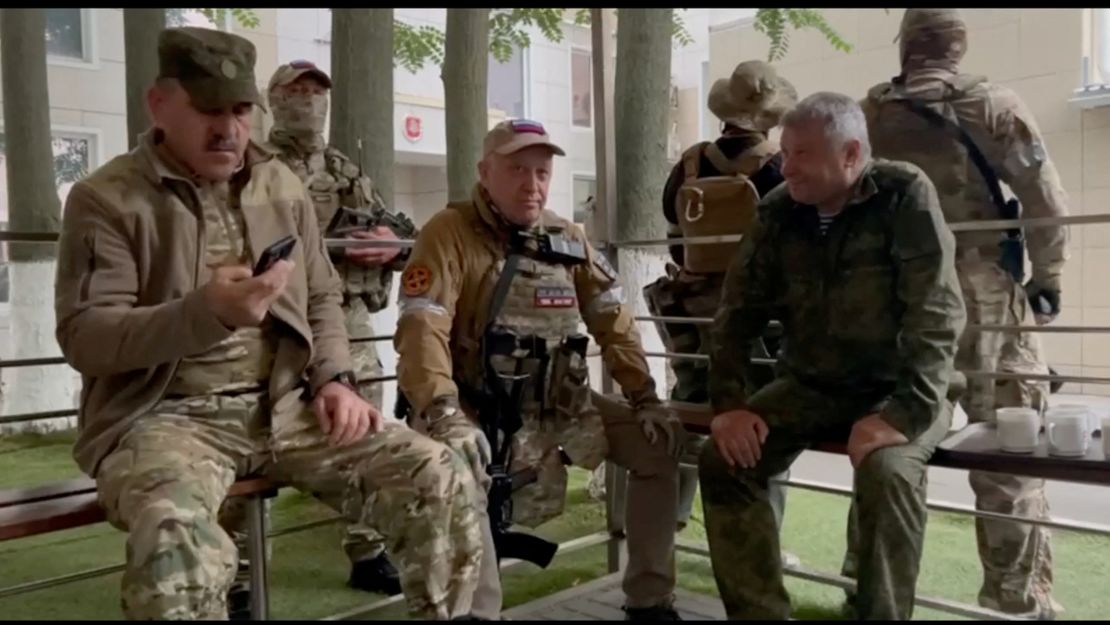
CNN has tracked Wagner mercenaries in the Central African Republic, Sudan, Libya, Mozambique, Mali, Ukraine and Syria. Over the years they have developed a gruesome reputation and have been linked to multiple human rights abuses.
Meanwhile, his business empire soon extended well beyond kitchens and battlefields. He also set up a Russian troll farm in St. Petersburg, the Internet Research Agency (IRA), where provocateurs were paid by Prigozhin to interfere with and undermine the 2016 US presidential election.
The US Treasury Department sanctioned the IRA in 2018, accusing it of having “created and managed a vast number of fake online personas that posed as legitimate US persons to include grassroots organizations, interest groups, and a state political party on social media.”
After Russia’s 2022 invasion of Ukraine, Wagner – bolstered by Russian convicts lured to its ranks personally by Prigozhin with promises of pardons and high salaries – took center stage. Its forces were heavily involved in taking the Ukrainian towns of Soledar and Bakhmut. And Prigozhin went from being a once camera-shy figure into a social media star, taking a far more active role on the front line than any of his Kremlin backers.
As the regular Russian army campaign was bogged down by setbacks and disorganization, he and his Wagner fighters appeared to be the only ones capable of delivering tangible progress for the Russian side.
Dilemma for Putin
Known for its disregard for the lives of its own soldiers, Wagner’s brutal and often lawless tactics are believed to have resulted in high numbers of casualties, as new recruits are sent into battle with little formal training – a process described by retired United States Lt. Gen. Mark Hertling as “like feeding meat to a meat grinder.”
Prigozhin used social media to lobby for what he wanted and often cast himself as competent and ruthless in contrast to the Kremlin’s military establishment.
In recent months, Prigozhin created a dilemma for Putin by becoming an outspoken critic of Russia’s military leaders.
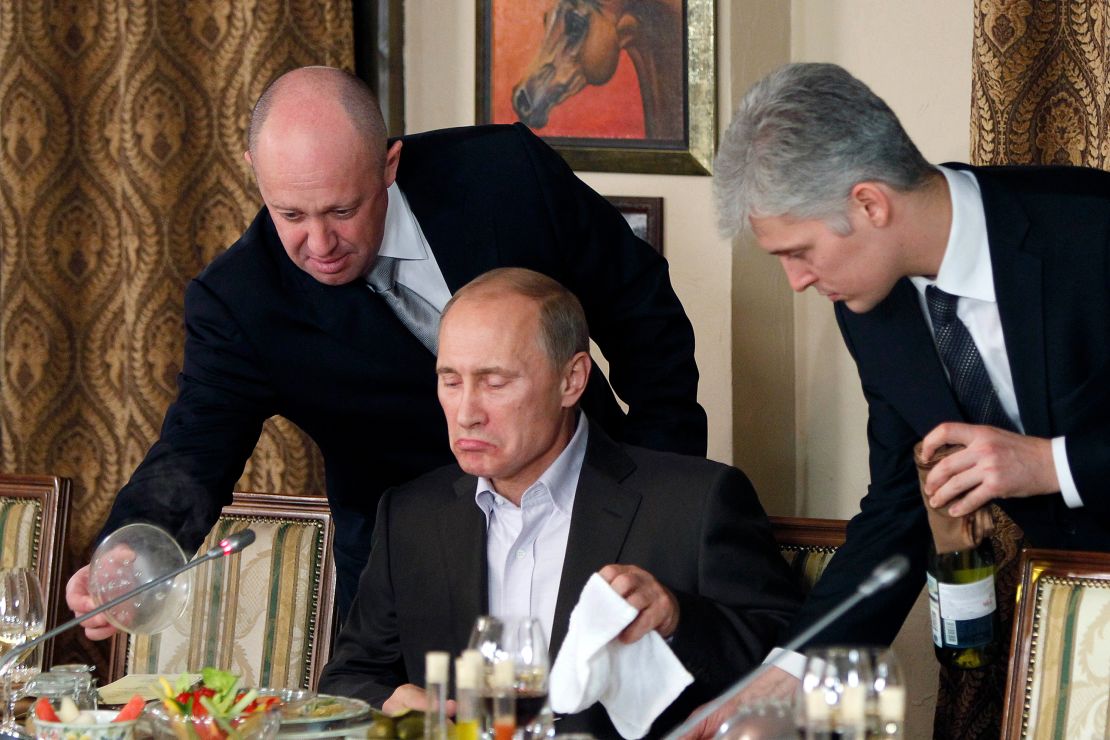
In one particularly grim video from early May, Prigozhin stood next to a pile of dead Wagner fighters and took aim specifically at Russian Defense Minister Sergei Shoigu and chief of the Russian armed forces, Gen. Valery Gerasimov.
“The blood is still fresh,” he said, pointing to the bodies behind him. “They came here as volunteers and are dying so you can sit like fat cats in your luxury offices.”
After complaining for well over a month of receiving insufficient support from the Kremlin in the grueling fight for the eastern city of Bakhmut, he announced in May that his troops would withdraw.
Prigozhin launched an all-out rebellion against the Kremlin in June at time when many observers were questioning if he was going too far with his increasingly outrageous outbursts.
Read more
The Wagner mutiny began when Prigozhin unleashed a fresh tirade against the Russian military and then marched his troops into the Russian city of Rostov-on-Don.
Staring down a sudden and staggering escalation of internal tensions that had simmered for months, Putin called Wagner’s actions “treason.”
“It is a stab in the back of our country and our people,” the president said in an address after Wagner’s about-face.
Prigozhin responded on Telegram saying that Putin was “deeply mistaken.”
“We are patriots of our Motherland, we fought and are fighting,” the Wagner chief said.
Speaking a day after the deadly plane crash, Putin reflected on his decades-long relationship with Prigozhin, saying he had known him for “a very long time.” He described the Wagner leader as “a talented businessman” who had made “serious mistakes in life.”
CNN’s Tim Lister, Jim Sciutto, Mick Krever, Jerome Taylor, Anna Chernova, Radina Gigova and Josh Pennington contributed to this report.

